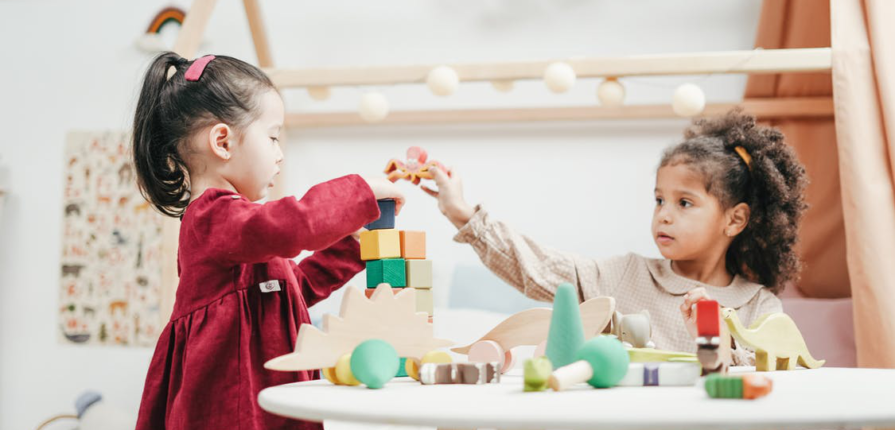According to the National Academies of Sciences, Engineering, and Medicine, young children thrive when they have positive and secure relationships with adults who are knowledgeable about how to support their learning and development. Children begin learning about the world around them in sophisticated ways—that aren’t always reflected in outward behavior—even in their earliest years.
As parents, caregivers, and teachers, it’s crucial to understand how our habits and ways of meeting life’s challenges inform how our children learn to interact with the world around them.
One of the central tenets of Montessori education is the importance of the environment’s influence on children’s physical, academic, and socio-emotional learning development. Montessori preschools have thoughtfully planned environments that are conducive to self-learning and help provide children with positive experiences.
Here we take a look at how a Montessori education differs from a typical public-school program.
The Differences between Montessori and a Typical Public-School Program
Unlike a typical public-school program, a Montessori education allows the following:
- Progress isn’t determined by the average progress of the class or school board expectations and timelines. The child sets their own pace of learning.
- The learning materials in a Montessori classroom are set around signals that indicate to the child when they have learned and mastered any particular activity or subject, or when they need to do more to accomplish it. This makes learning a self-governing process that eliminates feelings of shame, guilt, and failure that a child might otherwise feel in a public-school setting where teachers judge and rank children against each other. Activities cease to become competitions and instead focus on achieving skills for the child’s own sense of accomplishment.
- The teacher only provides direction when necessary, leaving children to guide their work independently.
- Each child becomes the focus of the classroom as an individual. Teachers take a backseat.
- Montessori classrooms aren’t laid out with desks arranged in rows and columns for students and teachers. Instead, they’re decked with thoughtfully constructed shelves that have learning materials lying on them.
A typical public-school education seeks to have children obtain proficiency in basic subjects that are deemed essential by the public-school system, so that they may receive a graduation certificate. Montessori education focuses on the child as a whole individual who needs to develop life skills and habits that make them into a well-rounded adult.

If you’re convinced that Montessori education is what your child needs to become responsible and confident learners, get in touch with us at Centerra Ranch Montessori School.
As an award-winning Montessori preschool & daycare center in Katy, TX, we are renowned for helping our students balance their academic, physical, and social/emotional development. We provide a peaceful and inspiring environment where every child is treated with the utmost respect and dignity.
Connect with us online or call us at 281-693-CRMS (2767) for more information.



